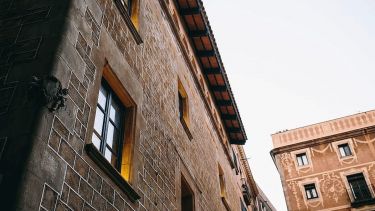Dis/ableism and the COVID-19 crisis: A partial view from Spain
by Dr Javier Monforte and Dr Joan √öbeda-Colomer

11 April 2020. Spain is one of the countries most affected by COVID-19, . The country has entered into the peak of the pandemic, and the so-called curve is flattening. Notwithstanding this, we are still in a precarious period. Hundreds of new infections and deaths are being registered every day. The state of alarm will be in effect until April 26th, although it could be extended, as it has occurred before. Hospitals and healthcare workers are at risk to collapse. The Spanish Prime Minister, Pedro S√°nchez, has asked for solidarity to safeguard the national healthcare system. Likewise, he has insisted that Spain will keep prioritising on protecting the most vulnerable segments of society from the virus, including elderly and disabled people, homeless people and people with severe health conditions. However, these people are at a particular risk, not just from coronavirus but also from discrimination.
This post focuses on the discriminating treatment of disabled people during the pandemic. This topic is observed through the lens of . Echoing Liddiard, we ask: Where do ableism and disablism show up in the current COVID-19 crisis? To answer this key question, we have chosen to highlight two parallel cases. Both have been trending topics in Spain. The reporting of both cases is undertaken because these are themselves of interest, but also because they illustrate the logics of dis/ableism, which might permeate in other social phenomena.
Case 1: Alongside grocery stores and few other exceptions, barber shops were treated as essential services at the beginning of the lockdown. This was received with incredulity and rage among many non-disabled people, showing an incapacity to see beyond the independent, able-bodied and self-sufficient subject of the . To justify their decision, that some people need assistance to maintain their basic hygiene. Such explanation was disregarded, and the sprang into action. ‚ÄėI must protect them above all (‚Ķ) I would rather they have dirty hair and they stay healthy‚Äô, , president of the Madrid region. ‚ÄėI‚Äô d also like a haircut, but I‚Äôll wait, as it should be‚Äô, some said. Given the complaints, the government has allowed hairdressing as an at-home service at the discretion of the provider. The public opinion seems pleased with it, which suggests a (temporary?) , and thus as an individual, rather than social issue. Dangerously, a normative social discourse and management of the pandemic can condemn disabled people to be ostracised and hated for exercising their basic human rights.
Case 2: ‚ÄėIrresponsible! You put all of us in danger! Shame on you! Die!‚Äô These are that autistic people and their parents have been hearing from balconies and windows of their own neighbourhoods, even after the government legally recognised their during the emergency state. Besides being told off, families have also been video recorded, reported to the police and forced to figure out how to respond, explain and confront their interrogators in ways they would rather avoid. The has been observing them, as in the panoptic described by . Thankfully these intimidating practices are not the norm, but there have been too many exceptions. The number of reported cases of harassment have driven to make available a to inform on situations of discrimination. Otherwise, a more sounded action undertaken by families has been a consisting in wearing blue armbands to avoid being booed and insulted by neighbours for being outdoors. However, organisations have rightly pointed out that the armband is a that might cause stigmatisation. Families, then, are obliged to choose between staying safe or being marked.
, the and constitute serious dangers during the pandemic. Disabled people’s rights could be threatened by reactionary attitudes towards the basic practices they need to live liveable lives, including therapeutic walks among others. Being discriminated during the pandemic might represent a double nightmare to disabled people. We must do better.

iHuman
How we understand being ‚Äėhuman‚Äô differs between disciplines and has changed radically over time. We are living in an age marked by rapid growth in knowledge about the human body and brain, and new technologies with the potential to change them.
